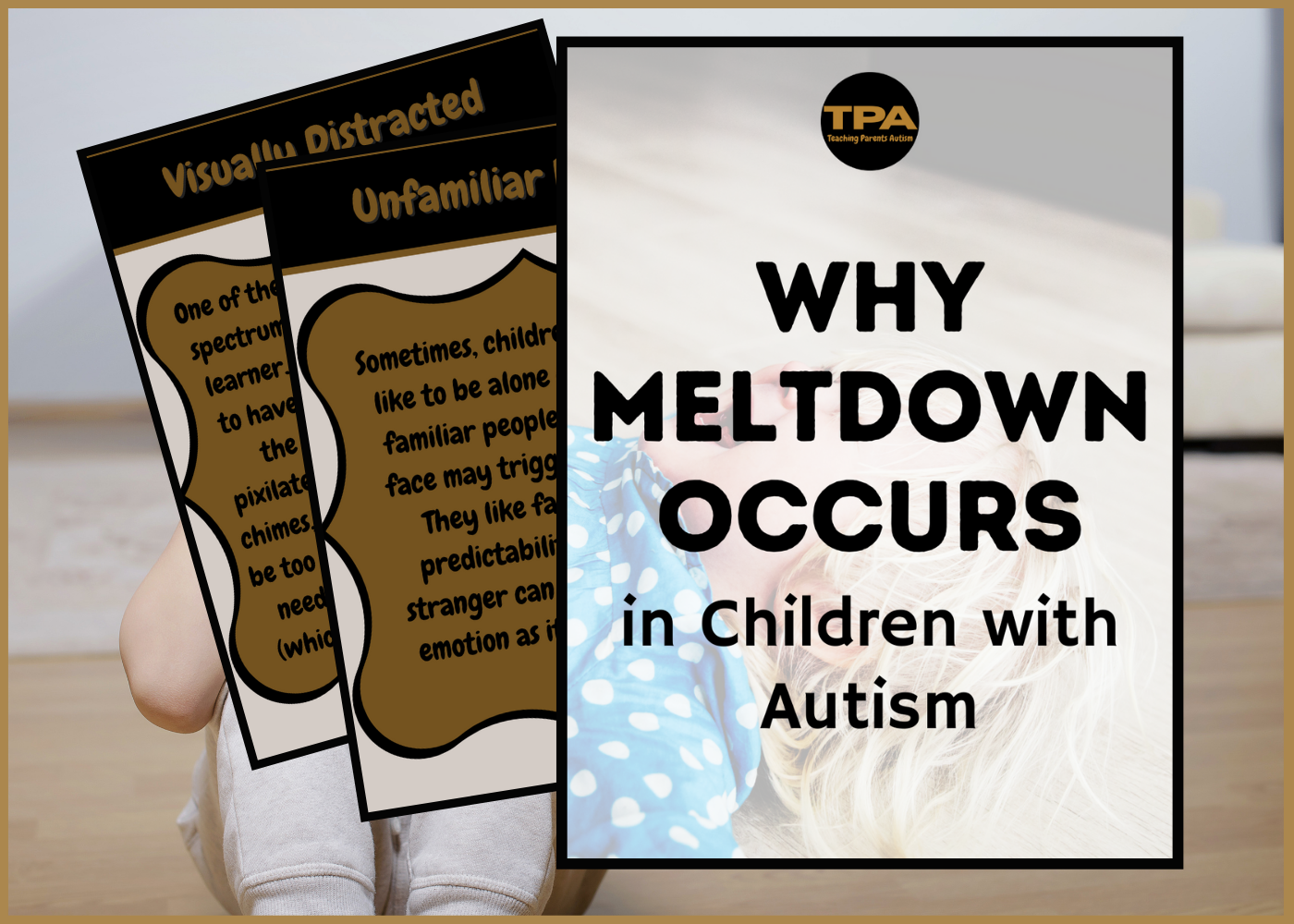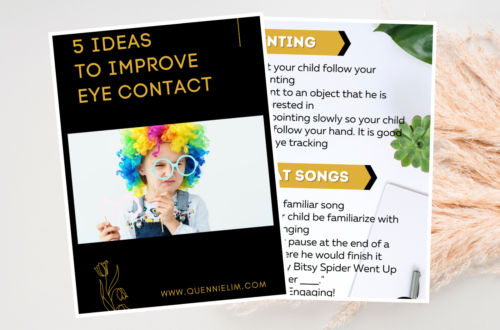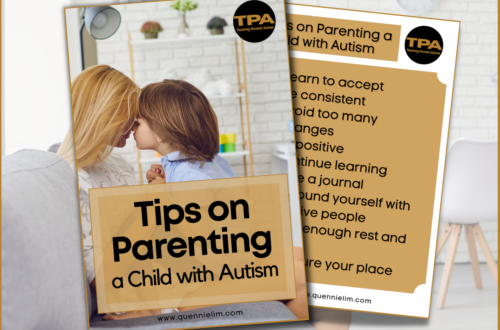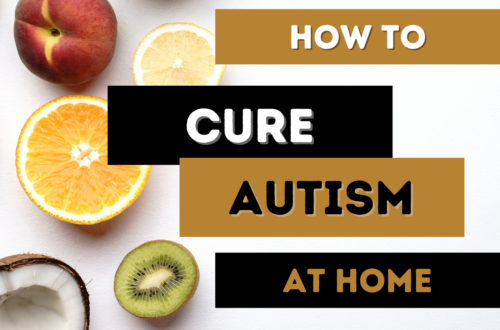Autism Meltdown

Why Meltdown Occurs in Children with Autism?
A meltdown occurs for several reasons.
Do not mistake meltdowns with tantrums. Tantrums usually happen when a child wants something and adults don’t give in to what he wants.
Meltdown based on my experience is a strong outburst of emotion that is difficult to control within oneself.
It is usually escalated from a small cry until the emotion is unbearable and gets to its peak then goes down until a child can cope, accept, or calm down for a reason.
When a child is intensely crying, it lasts a few minutes or it can last longer like an hour or more.
Sometimes, a meltdown happens consecutively for several times for the same reason.
Here are some of the reasons why meltdown happens to children with autism.
1. Change
Children with autism like predictability. When a change occurs and they are not pre-empted, they may escalate and meltdown because it is hard for them to accept that sudden change.
2. Unable to express or use proper words to say what they want.
For children who are Level 2-3 or fall under the non-verbal category, it will be hard to express what they need. Sometimes, parents guess what they want and need. Equipping yourself with proper information about autism will help you grow your understanding of their needs.
3. Overwhelmed with too much visual stimulus in a new environment
One of the characteristics of autism spectrum disorder is being a visual learner. If the environment seems to have a lot going on (posters on the walls, colorful banners, pixilated pictures, hanging crystal chimes, piled-up books, etc.), it may be too overwhelming to see as they need to organize their thoughts (which is one of their difficulties).
4. Overwhelmed with too many people
Sometimes, children with autism love to be alone or in a few familiar people. Seeing a new face may trigger a meltdown. As I mentioned, they like familiarity and predictability, so having a stranger can also affect their emotion as it is new to them.
5. Overloaded with activities
I heard a parent who enrolled her kid in a lot of tutorials and therapies on top of their regular school. Sometimes, they may not show that it is difficult to cope with their schedule plus the demands of learning from one lesson to another and another. I am not saying that therapies are not good for children. In fact, they are a must! They need it. We just have to be aware of their emotions, capabilities, needs, and strengths. From there, parents can enhance their skills, hone them at home for continued support and generalization. Parents have to be aware of the kids’ needs so they won’t get overwhelmed too.
6. The environment is too noisy
Some children are sensitive to loud sounds like drilling, vibration, horn, thunder, grinding, or crying. They get affected by these sounds and they can’t express because they may not understand in the first place. Or, sometimes, chatting or people talking can also affect kids’ emotions thus will resort to meltdown.
7. Feeling tired, sleepy, or hungry
They may not identify their feelings but it may show through their behavior and actions. Sometimes, crying can be the cause of tiredness, being hungry, or being sleepy. They may not have enough or proper sleep from the day’s activities and all they want is to get to bed or rest or eat to get more energy.
8. Feeling hurt or in pain (e.g. toothache, headache, or stomach pain)
One of the reasons for meltdown is feeling something inside their body but unable to say or identify that feeling. They may also feel uncomfortable resulting in difficulty moving around. They may get misunderstood because of their actions.
9. Need some regulation, break, or movement
Children with autism spectrum disorder have underlying sensory processing difficulties. Sometimes, they get tired of activities and need a bit of a movement break. Give them so that they can attend to the task again after some breaks or rest.
I have created an easy downloadable right below here. Click the button below to get it!
I hope I was able to share valuable information with you so you can understand your child better.
Please share this with other parents so they can also grow their understanding of autism.
‘Til next time!
Bye for now!





